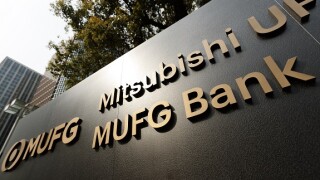-
MUFG is overhauling personnel and its business model to try to escape a cycle of low returns, writes David Rothnie.
-
Little lenders are being pushed closer to collapse in the UK by rules that were supposed to make them more resilient. The Bank of England should take note.
-
Baoshang Bank’s complete write-down of close to $1bn of tier two debt offers an invaluable lesson to investors in China’s domestic bond market.
-
This week in Keeping Tabs: what a Biden administration means, the people behind the BioNTech vaccine, the link between commercial property and bank equity, and a proposal for dealing with debts in poor countries.
-
It felt like a great weight had been lifted from financial markets this week. Two weights in fact.
-
The ease with which banks have been able to deploy retained covered bonds for repo funding with central banks has aggravated liquidity risks and undermined regulations that were designed to shore up liquidity management practices exposed as inadequate during the 2008 financial crisis.
-
The Bank of Japan has said that it will pay extra on reserves deposited by banks that become more cost efficient or that merge. A similar policy could well be introduced in Europe too, although perhaps with different aims.
-
The way the EU handles Banca Monte dei Paschi di Siena will yet again set a precedent for other struggling banks.
-
It’s a pity the irreversible damage to our world’s lungs through the wanton destruction of its rainforests does not come with the same stark health warning found on a packet of cigarettes. If it did, the world’s largest banks and asset managers might be shamed into giving up their dirty habit.
-
BNP Paribas has shaken up its advisory business to address underperformance in its home market, but this must be more than a quick fix to restore national pride, writes David Rothnie.
© 2026 GlobalCapital, Derivia Intelligence Limited, company number 15235970, 4 Bouverie Street, London, EC4Y 8AX. Part of the Delinian group. All rights reserved.
Accessibility | Terms of Use | Privacy Policy | Modern Slavery Statement | Event Participant Terms & Conditions
Cookies Settings










